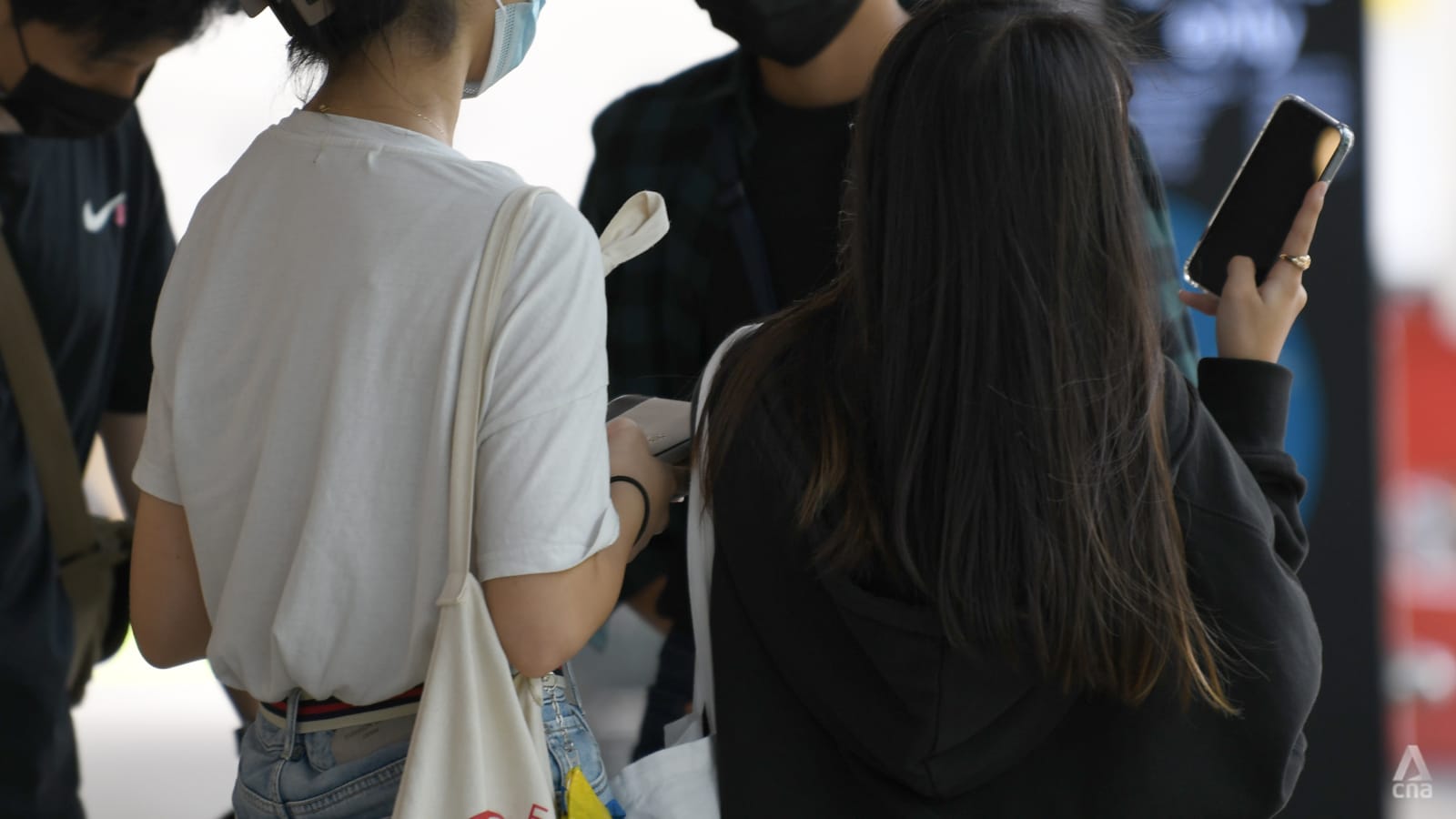
SINGAPORE: As part of efforts to tackle scams, the Infocomm Media Development Authority (IMDA) announced on Friday (Oct 14) new measures that will be implemented for all organisations and telecom operators.
Organisations that use SMS sender IDs will be required to register with the Singapore SMS Sender ID Registry (SSIR) by January next year, said the authority. Registration with the SSIR is so that bona fide organisations can use such sender IDS.
Telecom operators will also implement SMS anti-scam filtering solutions within their networks, to automatically filter potential scam messages before they reach consumers, IMDA said in a news release.
These two measures come after public consultation and are part of the multi-pronged effort by IMDA and other stakeholders to further safeguard SMS as a communications channel.
IMDA earlier announced the proposal for organisations to register with the SSIR in August, adding that it was working on it with the police, Government agencies and private sector partners.
IMDA set up the SSIR in March this year in response to a surge in SMS-related scams. Following its set up, there was a 64 per cent reduction in scams through SMS from the fourth quarter of 2021 to the second quarter of 2022.
Scam cases perpetrated via SMSes make up about 8 per cent of scam reports in the second quarter of 2022, down from 10 per cent last year.
The current registry is a voluntary regime, said IMDA. This means that only organisations that want to proactively protect their Sender IDs register with the SSIR.
“Moving forward, registration will be made mandatory. This means that only bona fide Sender IDs belonging to organisations, will be allowed,” said IMDA, adding that all other sender IDs will be blocked.
The full registration requirement will take effect on Jan 31, 2023.
Implementation by January 2023 is driven by the need to act proactively to strengthen the SSIR, said IMDA as it noted the support for the proposal by both the public and merchants.
“As some organisations may need more time to prepare and register, their SMS cannot be clearly differentiated from other SMS that come from unknown sources and may be scam messages,” it added.
As a transition measure, all non-registered SMS sender IDs after Jan 31, 2023 will be channelled to a sender ID with the header “Likely-SCAM”. This is akin to a spam filter and spam bin and will be in place for about six months, said the authority.
Consumers are advised to exercise caution upon receiving such SMS as these are non-registered sender IDs, it said, adding that merchants are also urged to have their sender IDs registered early as possible with the registry.
TELCOS TO IMPLEMENT ANTI-SCAM FILTERS BY OCTOBER
Key mobile operators – Singtel, Starhub and M1, will implement anti-scam filtering solutions in their networks by the end of October, said IMDA.
“Machine-reading technology has made it possible to identify and filter potential scam messages upstream. Specifically, these solutions can detect malicious links within SMSes sent via our telecoms network,” it added.
Together, the new measures form part of an ongoing approach to strengthen protection against scams, said IMDA.
This has been done with telecom operators to systematically reduce scam calls and SMS coming through the communication networks.
Combatting scams is a whole of society effort, and the public should continue to remain vigilant, it added.
“Scammers will continue to change their methods and tactics and there is no fool-proof measure even as we continue to monitor and implement additional safeguards.”
Members of the public that have any information relating to scams, including malicious SMSes, URLs and other links, they can be submitted online on iWitness. They can also submit information on malicious SMSes via the ScamShield app or the website.

